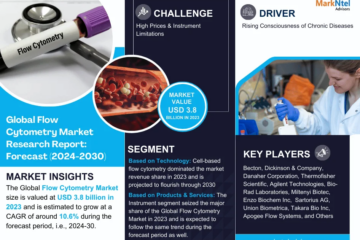Studying for a data analytics course can be both exciting and challenging. The field of data analytics is rapidly growing, driven by the increasing demand for data-driven decision-making in virtually every industry. As you embark on your data analytics journey, it is crucial to adopt effective study techniques to maximize your learning potential. This article will guide you through strategies that can help you study effectively for your data analytics course, including tips for tackling the associated coursework, assignments, and exams. Whether you are new to the field or taking a Data Science course to enhance your career prospects, these methods will help you excel.
Understanding the Core Concepts
Before diving into specific study techniques, it is essential to understand the foundational concepts of data analytics. Data analytics involves collecting, processing, analyzing, and interpreting large datasets to draw meaningful conclusions. The core areas you will study include:
- Descriptive Analytics: Summarizes historical data to understand what has happened.
- Diagnostic Analytics: Examines data to determine why something happened.
- Predictive Analytics: Uses historical data to predict future outcomes.
- Prescriptive Analytics: Recommends actions to achieve desired outcomes based on data analysis.
Establish a Solid Study Routine
One of the most effective ways to study for a data analytics course is by establishing a consistent study routine. Here are some steps to create a routine that works for you:
- Set Clear Goals: Define what you want to achieve in your course. Whether it’s mastering a specific analytics tool or understanding a particular concept, setting goals will give you direction and motivation.
- Create a Study Schedule: Allocate specific times for studying each day. Consistency is key; even short, regular study sessions are more effective than cramming the night before an exam.
- Break Down the Material: Data analytics is a vast field. Break down your syllabus into manageable chunks and focus on one concept at a time.
- Use the Pomodoro Technique: This time management method involves studying for 25 minutes, then taking a 5-minute break. It helps maintain focus and prevent burnout.
Leverage Online Resources
In addition to your course materials, take advantage of the wealth of online resources available for data analytics. These can supplement your learning and provide different perspectives on complex topics. Some useful resources include:
- Online Courses and Tutorials: Websites like Coursera, edX, and Udemy offer courses on specific data analytics tools and techniques. These platforms often provide hands-on exercises that allow you to practice what you’ve learned.
- YouTube Channels: Channels like “StatQuest with Josh Starmer” and “Data School” offer video tutorials on statistical concepts and data analytics tools.
- Blogs and Forums: Engage with the data science community through blogs like Towards Data Science and forums like Stack Overflow and Reddit. These platforms allow you to ask questions, share knowledge, and learn from others.
Practice with Real-World Data
Data analytics is a practical field that requires hands-on experience. To effectively study for your data analytics course, practice analyzing real-world data. This will help you apply theoretical knowledge to practical situations. Here’s how you can get started:
- Work on Case Studies: Many data science courses, including Data Science courses, include case studies that simulate real-world problems. These are invaluable for developing problem-solving skills.
- Participate in Competitions: Platforms like Kaggle offer data analytics competitions where you can work on real datasets and compare your solutions with others. This is a great way to challenge yourself and learn new techniques.
- Analyze Open Data: Numerous organizations, such as government agencies and NGOs, provide open datasets that you can use for practice. Analyzing these datasets can help you understand how data analytics is applied in different industries.
Master the Tools and Software
Data analytics involves using various tools and software for data manipulation, visualization, and analysis. Familiarize yourself with the tools commonly used in the field, such as:
- Excel: While basic, Excel is a powerful tool for data analysis. Learn how to use formulas, pivot tables, and charts effectively.
- SQL: Structured Query Language (SQL) is essential for managing and querying databases. Practice writing queries to extract and manipulate data.
- Python and R: These programming languages are widely used in data analytics for statistical analysis, machine learning, and data visualization. Learn libraries such as Pandas, NumPy, Matplotlib, and Scikit-learn (Python) or ggplot2 and dplyr (R).
- Tableau and Power BI: These data visualization tools are used to create interactive dashboards and reports. Understanding how to present data visually is crucial for communicating insights.
Focus on Statistical Concepts
A strong understanding of statistics is essential for data analytics. Focus on building a solid foundation in the following statistical concepts:
- Probability: Understand the basics of probability, including conditional probability, Bayes’ theorem, and probability distributions.
- Descriptive Statistics: Learn how to calculate and interpret measures of central tendency (mean, median, mode) and measures of variability (standard deviation, variance).
- Inferential Statistics: Study hypothesis testing, confidence intervals, and regression analysis. These concepts are key to making predictions and drawing conclusions from data.
- Machine Learning Algorithms: As you advance in your Data Science course, you’ll likely encounter machine learning algorithms like linear regression, decision trees, and clustering. Understanding the statistical foundations behind these algorithms will enhance your analytical skills.
Collaborate with Peers
Collaborating with classmates or joining study groups can significantly enhance your learning experience. Working with others allows you to:
- Exchange Ideas: Discussing concepts with peers can provide new insights and help you understand different perspectives.
- Tackle Complex Problems: Working on assignments or projects in a group allows you to divide tasks and tackle more complex problems.
- Stay Motivated: Studying with others can keep you accountable and motivated, especially during challenging times.
Review and Reflect Regularly
Regular review and reflection are crucial for retaining knowledge and identifying areas that need improvement. Incorporate the following practices into your study routine:
- Weekly Review Sessions: Set aside time each week to review what you’ve learned. This helps reinforce your knowledge and ensures you don’t forget key concepts.
- Practice Quizzes: Test yourself regularly with practice quizzes. This will help you gauge your understanding and prepare for exams.
- Reflect on Mistakes: If you make mistakes on assignments or quizzes, take the time to understand where you went wrong. This reflection will help you avoid similar mistakes in the future.
Prepare for Exams Strategically
When it comes time to prepare for exams, a strategic approach is essential. Here’s how to effectively prepare for your data analytics exams:
- Review Key Concepts: Focus on the most important concepts covered in your course. Pay special attention to areas where you struggled during the semester.
- Practice Past Papers: If available, practice with past exam papers or sample questions. This will familiarize you with the exam format and the types of questions you might encounter.
- Summarize Notes: Create summary notes or flashcards for quick revision. Condensing your notes into key points makes it easier to review them before the exam.
- Stay Calm and Confident: Finally, stay calm and confident during your exams. Trust in your preparation, and approach each question methodically.
Conclusion
Studying for a data analytics course, especially a Data Science course, requires dedication, discipline, and a strategic approach. By establishing a solid study routine, leveraging online resources, practicing with real-world data, mastering tools and software, focusing on statistical concepts, collaborating with peers, and regularly reviewing your progress, you can effectively navigate the challenges of your course. Remember that data analytics is a dynamic field, so staying curious and continuously seeking knowledge will not only help you succeed in your studies but also set you up for a rewarding career in this ever-evolving domain.
Location: Gandhinagar



0 Comments